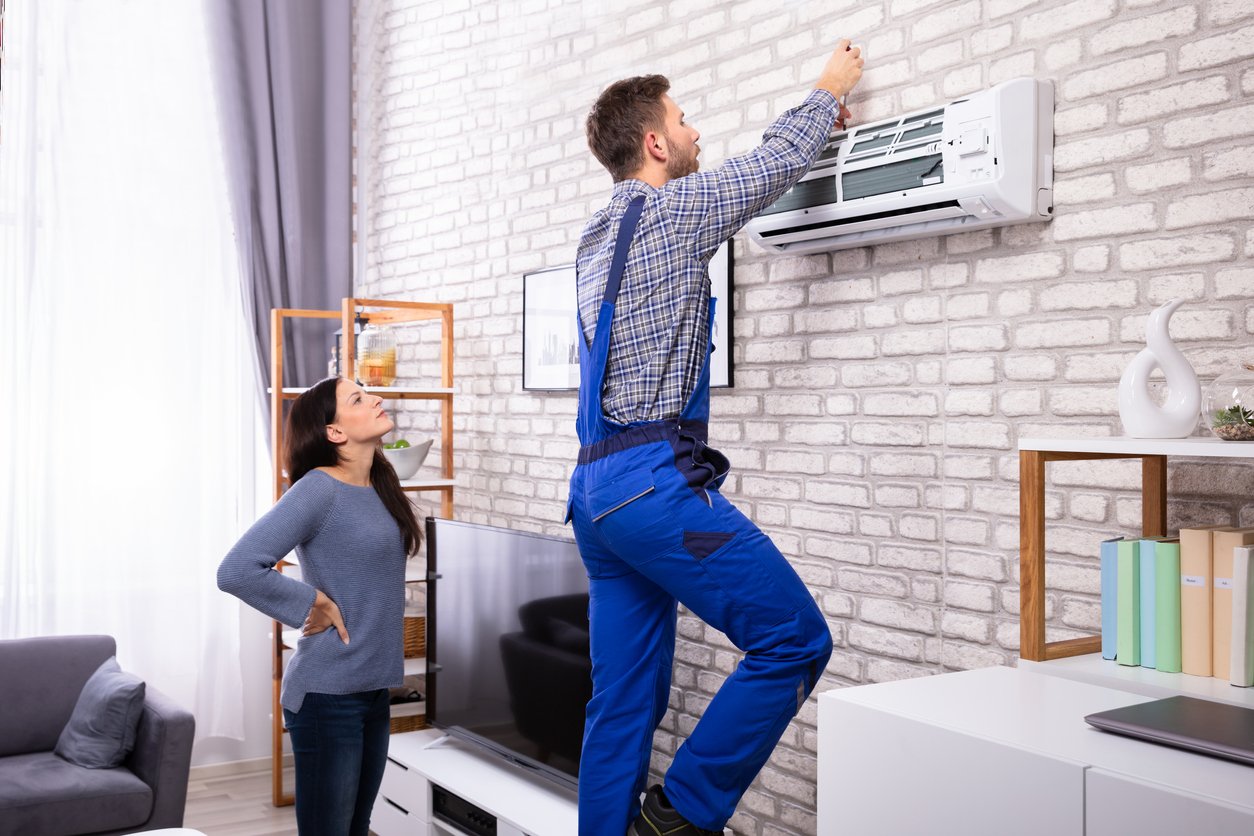Both landlords and tenants often ask the question: Is the landlord responsible for air conditioning? The answer actually varies from state to state.
In every state, landlords are legally required to provide heat. This may be done by calendar date or by average temperature. Not providing adequate heat (usually defined as the ability to heat the unit to somewhere around 65 or 68F) renders an apartment uninhabitable. Air conditioning is a different matter.

Is Air Conditioning Legally Required?
Air conditioning is legally required in only one state: Arizona. The city of Dallas in Texas also requires landlords provide air conditioning, but that doesn't apply to the state of Texas as a whole. In two more states, California and Georgia, landlords are required to keep air conditioning in good condition if it is installed. Air conditioning may also be covered by laws requiring that landlords keep appliances they provide in good condition.
Everywhere else, a functioning air conditioner is not considered a right, including in New Mexico (which can be just as hot as Arizona) and southern Florida (which is often worse).
Even though your state may not legally require you to provide AC, a tenant may be able to make a case for demanding air conditioning is an accommodation for a disability. Heat intolerance can be caused by some medications (including many allergy medications) hyperthyroidism and multiple sclerosis. In this case, a landlord may provide a window air conditioner or similar in-unit air conditioner rather than making structural alterations.
Beyond considering the law, you should also consider the comfort of your tenants. Providing air conditioning can be a selling point and can reduce tenant complaints in climates where air conditioning is useful or even needed.

If Air Conditioning is Installed, is it the Landlord's Responsibility to Fix It?
In most cases, yes. It's the landlord's responsibility to fix air conditioning within a specified time (2-5 days in Arizona, 30 days in California, for example). You are responsible for all costs, and it's recommended that you fix it ASAP. Lack of air conditioning can cause health issues in some clients.
However, if the damage was a result of neglectful or careless behavior by the tenant or guests you can reasonably charge them for AC repair or take it out of their security deposit. This can be hard to prove sometimes and is one reason why you should take careful notes during your pre-move-in inspections.
You are only responsible for repairs once the tenant has notified you, so it's recommended that you put notification procedures in the lease. Have the tenant call you and notify you in writing when the AC fails, including the unit number and address.
You should also make sure that the air conditioning system is inspected and filters changed before the hot weather hits in the spring, so any repairs can be made before they get worse or result in a complaint.
When is the Tenant Responsible?
There is one situation where the tenant is responsible, although this is not possible in states with tight laws about providing AC. You can release yourself from responsibility in the lease. If you don't mention it, the tenant can argue it's part of included services, and they are likely to win.
However, given the fact that a broken air conditioner can be used as an argument that you did not provide a habitable unit, it's generally best to keep control of air conditioning repair to avoid liability later. This is particularly true if you have a tenant requesting air conditioning as a disability accommodation.
---
If in doubt, handling a malfunctioning AC unit is the kind of thing best handed over to a professional property manager. They can ensure you follow state and local laws about habitability and providing air conditioning, make sure repairs and maintenance are scheduled, and let you remain hands off.
Contact HomeTeam to learn more about how our property management services can help you with all of your questions as a landlord.

